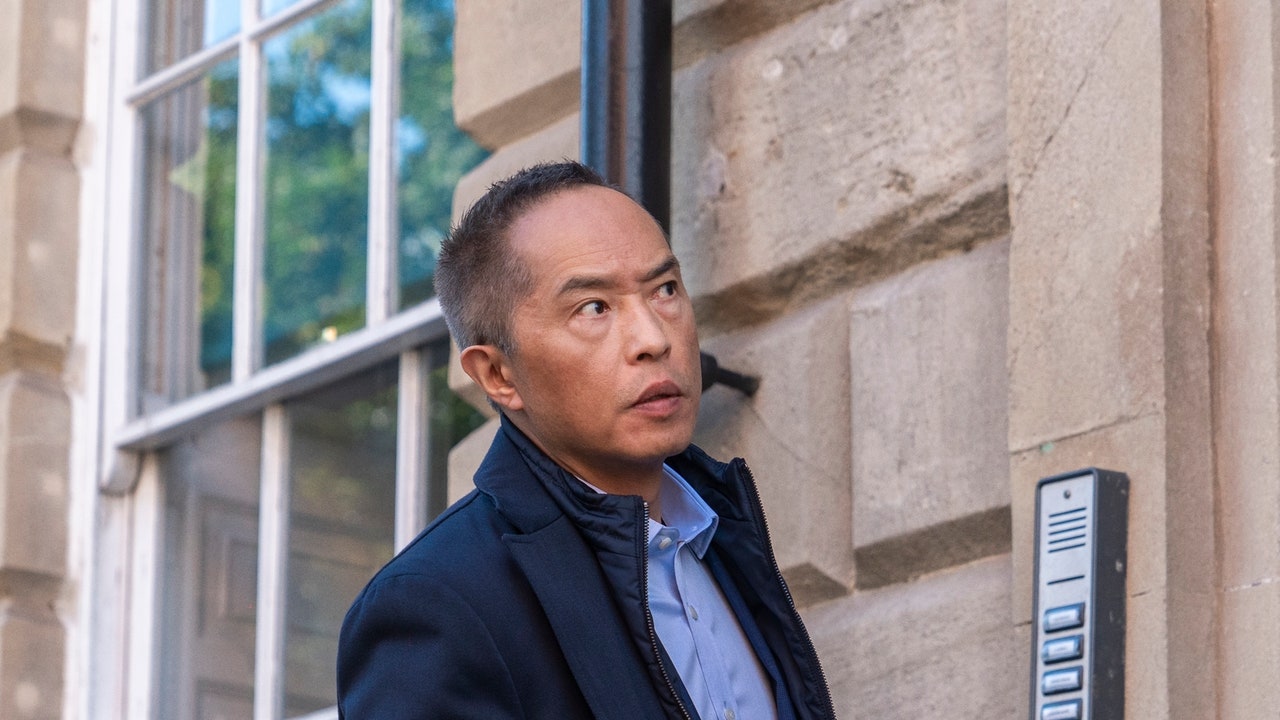
Eric tends to be quite domineering on this show, especially to the people working under him. But in this episode, there’s a lot of him just in that meeting, watching people.
He kind of doesn’t feel like he belongs in that meeting, so he’s quiet until he has something to say. I mean, I played it that way. There’s a lot of actors that I’ve not met before, and we’re in this emergency situation where everything is at stake. I’m there really to support Bill, that kind of moral support, ironically.
Right.
In playing it, with this show, you really have to always be alert as to what is happening, because it’s such a foreign world. I mean, I just naturally do that anyway.
These scenes are intense to watch. Are they intense to shoot?
Well, it was such a crowded, kind of uncomfortable room, just because of the bodies that were in there. It was packed, there was food, there was all these kinds of smells. It lent itself to this feeling of, Well, we’ve got to buckle down to get something done. As an actor, that could be the shooting of the scene. It could easily translate into the solving of this problem. But every time we weren’t shooting, we tried to keep it as light as possible. It’s also, now that we’re talking about it, this funny social element for shooting these, because you’re with actors that you’re used to working with on this show, but then you’re also meeting new actors, and you’re also surrounded by background actors who you don’t know at all. The socializing is mixed, and so you’re always, I don’t know, orienting yourself to that.
How does that affect your performance? When you’re acting against somebody who you haven’t worked with before, does it take a moment to figure the person out, or can you kind of work with that in the context of the scene?
I don’t really know. I guess you’re taking them in as it’s going. A lot of acting is listening. It’s not so much, “You’re going to do this, and then I’m going to do that.” It’s like, “How are you going to communicate this?” And basically, how you communicate that, I’m going to respond, but I can’t predict what you’re going to do. I mean that’s true for people even if you have worked with them. With Eric, he’s in a room where he doesn’t feel like he belongs or maybe even is involved in. It’s such a dire situation that he’s even there. I don’t know if that answers your question.
You’re not just listening to words. You’re listening to how the other actor is expressing themselves, their body language, and you’re reacting to that. Maybe the mysteriousness comes from the fact that it’s kind of a mystery to us too, while we’re doing it, in that it’s not so planned. And especially on a show like Industry, we’re lucky enough to be given a lot of latitude, where you play a scene a certain way, the next scene it’s encouraging, try a new thing. How it eventually comes out is, I don’t even remember. You’re talking about the process of acting, and those scenes in that conference room, it’s kind of set up to mimic the real situation in terms of new faces and just a new energy in the room. I don’t know, I try to stay as relaxed as I can so that I can kind of absorb everything that’s going on around me as much as I can, so that the response is an organic response, it’s not a planned response that’s based on intellect.
Trending Products










